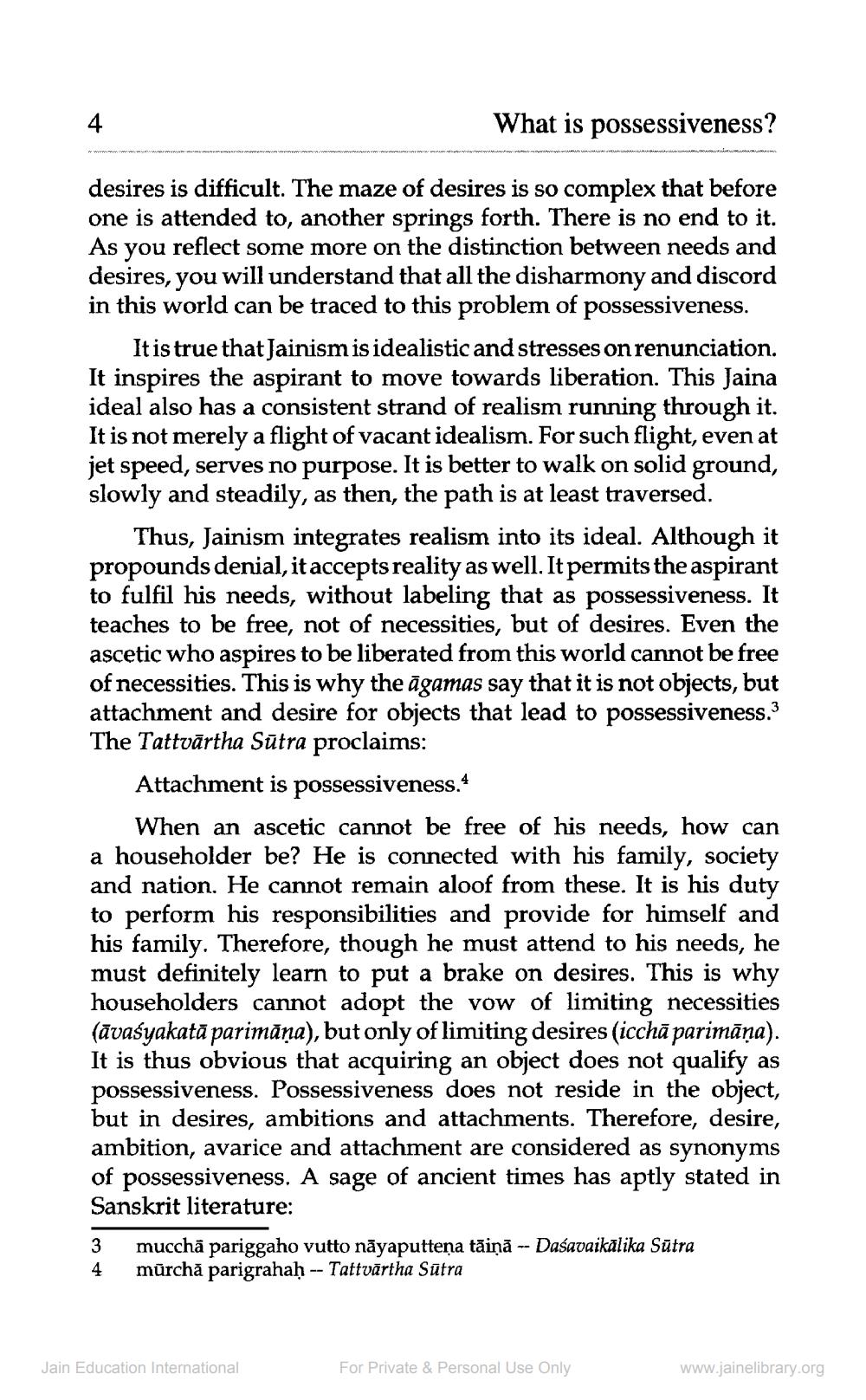________________
What is possessiveness?
desires is difficult. The maze of desires is so complex that before one is attended to, another springs forth. There is no end to it. As you reflect some more on the distinction between needs and desires, you will understand that all the disharmony and discord in this world can be traced to this problem of possessiveness.
It is true that Jainism is idealistic and stresses on renunciation. It inspires the aspirant to move towards liberation. This Jaina ideal also has a consistent strand of realism running through it. It is not merely a flight of vacant idealism. For such flight, even at jet speed, serves no purpose. It is better to walk on solid ground, slowly and steadily, as then, the path is at least traversed.
Thus, Jainism integrates realism into its ideal. Although it propounds denial, it accepts reality as well. It permits the aspirant to fulfil his needs, without labeling that as possessiveness. It teaches to be free, not of necessities, but of desires. Even the ascetic who aspires to be liberated from this world cannot be free of necessities. This is why the āgamas say that it is not objects, but attachment and desire for objects that lead to possessiveness.3 The Tattvārtha Sūtra proclaims:
Attachment is possessiveness.
When an ascetic cannot be free of his needs, how can a householder be? He is connected with his family, society and nation. He cannot remain aloof from these. It is his duty to perform his responsibilities and provide for himself and his family. Therefore, though he must attend to his needs, he must definitely learn to put a brake on desires. This is why householders cannot adopt the vow of limiting necessities (āvaśyakatā parimāņa), but only of limiting desires (icchā parimāņa). It is thus obvious that acquiring an object does not qualify as possessiveness. Possessiveness does not reside in the object, but in desires, ambitions and attachments. Therefore, desire, ambition, avarice and attachment are considered as synonyms of possessiveness. A sage of ancient times has aptly stated in Sanskrit literature:
3
mucchä pariggaho vutto nāyaputtena tăină -- Daśavaikälika Sūtra mūrchă parigrahaḥ -- Tattvārtha Sutra
Jain Education International
For Private & Personal Use Only
www.jainelibrary.org




